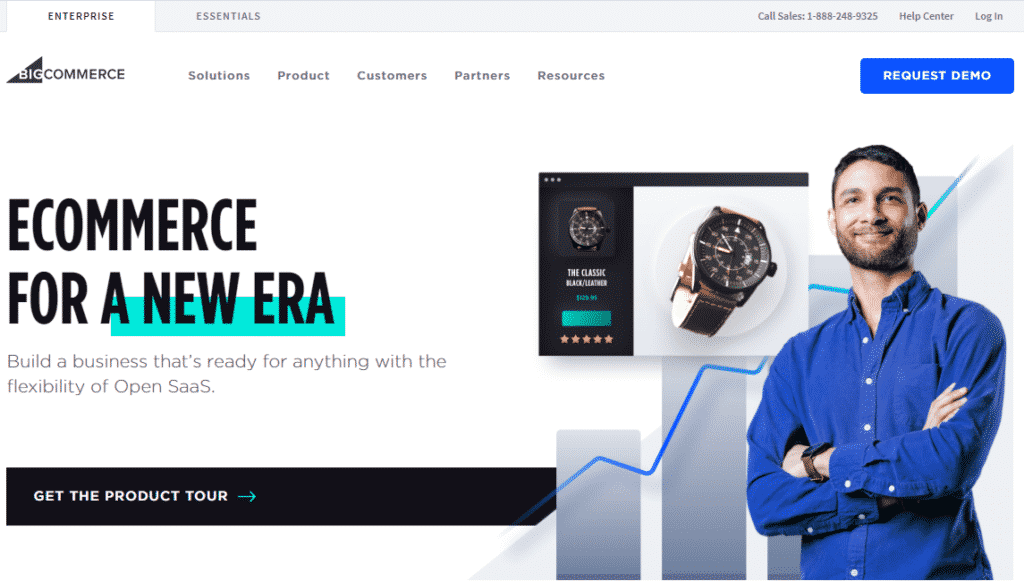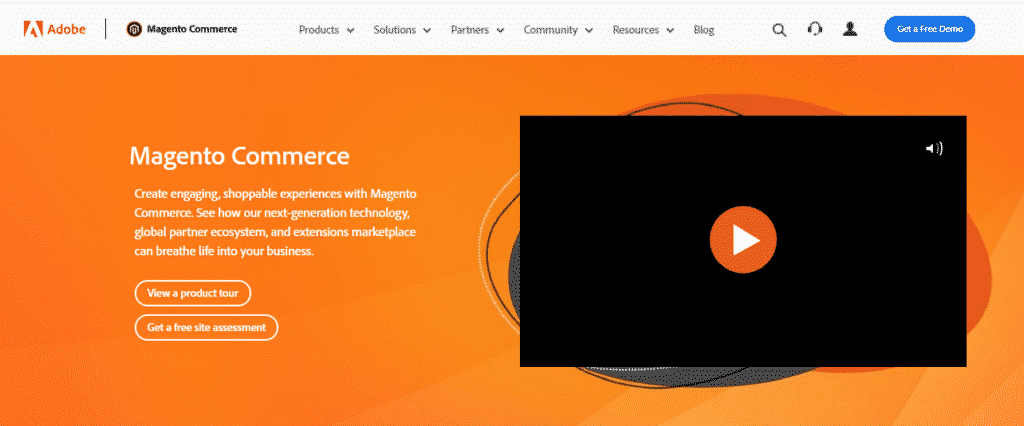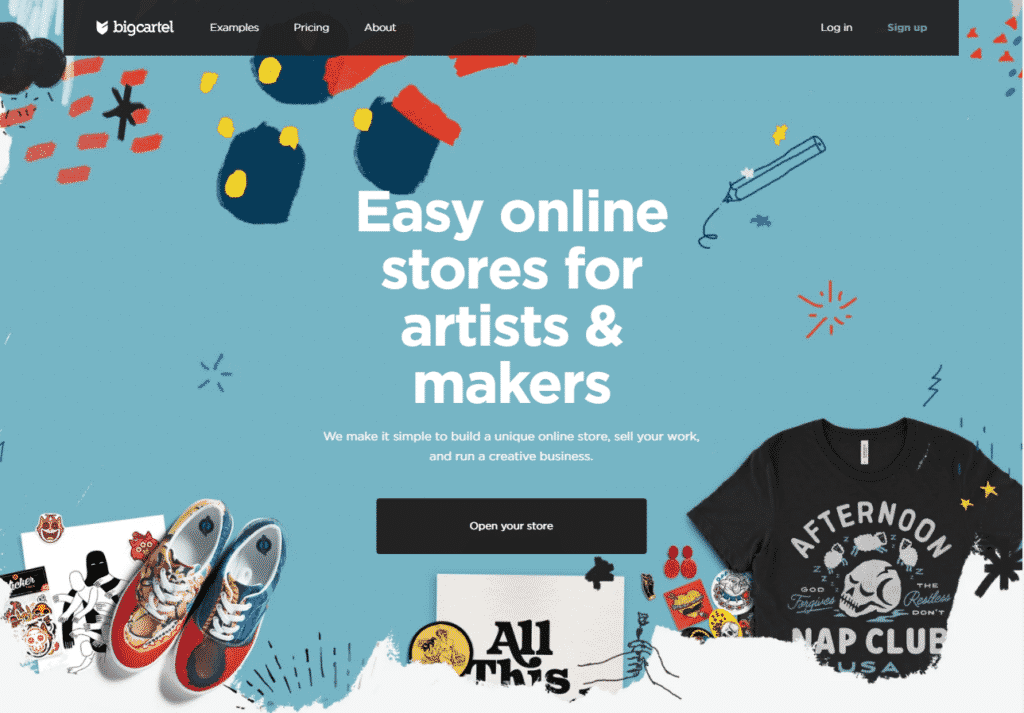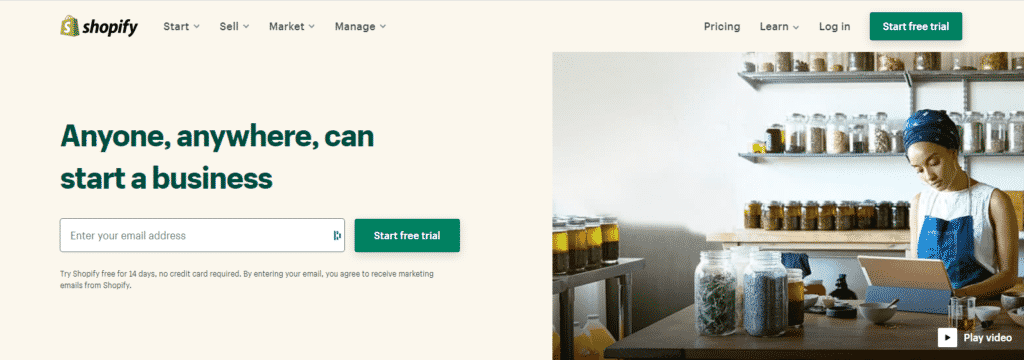The year 2020 sent eCommerce into the stratosphere. With millions being forced to stay at home, the time to start an online storefront has never seemed like a better time. Here is the question though…
Where are you going to start your online store?
Shopify is the answer for a lot of people. The leading eCommerce platform fits the needs of business owners around the world, providing a place where these men and women can sell their goods and services to a large audience.
There are so many hosting options out there today, that as great as Shopify is, it might not be the right fit for you and your business’s goals. For that reason, it’s worth discussing Shopify alternatives.
Here are five alternatives to Shopify for you to consider when starting your online business.
5 Shopify Alternatives
Before we start going through each of these options, understand that these sites are all trying to do the same thing. They are trying to help you get your product into customers’ hands.
Each site has its own unique set of pros and cons. Let’s go through them and figure out which eCommerce software is right for your business.
1. BigCommerce

Let’s get things going with BigCommerce…
BigCommerce is a paid-for, ‘hosted’ e-commerce solution that allows business owners to set up an online store and sell their products on the web. ‘Hosted’ means that BigCommerce runs on its own servers — so you don’t have to buy web hosting or install anything on your computer to use it. As long as you have access to a web browser and the internet, you can build and manage your store from anywhere.
It’s a ‘software as a service’ (SaaS) product, which means that you don’t own the software, but pay a monthly fee to use it.
The product comes with a range of customizable templates to help you design your online store; you can use it to sell either physical or digital goods; and there are also some tools provided to help you market your store.
– BigCommerce Reviews (2021) — All the Pros and Cons by Chris Singleton
Put simply: BigCommerce is a pretty similar software to Shopify, but some of the subtle differences might matter to you.
BigCommerce is said to have an extraordinary variety of built-in sales features, so you’ll be less likely to install additional apps as you might with Shopify. They also don’t have transaction fees on any plan, making it the slightly cheaper option. Finally, BigCommerce has 12 free themes compared to Shopify’s 9, which gives you more free options to create a great looking website.
2. Wix

Another great option you might have heard of is Wix.
Their visually impressive layouts are designed for small businesses, restaurants, online stores and artists such as musicians and photographers. They are optimized for mobile devices and can be spiced up with one of the numerous apps available from the Wix App Market.
In a way you can compare Wix to a prefabricated house: the fundamental structure already exists and can’t be changed. You can, however, paint the walls to your gusto (choose a theme) and add the furniture you love (photo galleries and other apps – you can learn how in our Wix tutorial).
– Wix.com Review – The Flexible Website Builder by Armin Pinggera
The prefabricated house analogy is a great one to help you visualize what Wix is all about. Making the process as easy as possible will help you save time, money, and your own peace of mind.
Wix is harder to use, but gives more flexibility than almost any other eCommerce software I can think of. You can position elements on your page in virtually any way you can think of, whereas other tools like Shopify and BigCommerce will force you to work within themes.
3. Magento

Magento hits the nail on the head with what they do…
From community to superior support; from multitasking to flexibility, Magento ticks all the boxes that make up the list of prerequisites of an active, successful, and sustainable Magento ecommerce website.
Magento gets a lot of attention from merchants and developers when it comes to advanced ecommerce platforms. Developers love it because of its flexibility, as they can do almost anything according to the client’s needs. Merchants love it because of the vast number of functionalities and features, Magento provides out of the box.
– Top 10 Reasons to Choose Magento For eCommerce by Syed Muneeb UI Hasan
If you expect that you’ll be creating all sorts of unique integrations and complex technical setups, then Magento is the way to go. It’s a dream for developers. Plus, Magento is backed by Adobe and their support team is among the best around.
4. SquareSpace

You might have heard of SquareSpace before. They are one of the biggest hosting sites out there today! Similar to every other site that I have listed, SquareSpace taps into templates, customer support, and so many other key features to help your business thrive.
Squarespace is not just a website builder; it’s an all-in-one content management system or CMS. With your subscription, you have access to their user-friendly platform, content hosting, well-designed templates, built-in security and analytics, 24/7 support, and many more.
If you’re looking to save time, energy, and money with building your website and killing it online, look no further.
– 24 Reasons to Use SquareSpace to Build Your Site by Tet
SquareSpace is a kinder tool for total beginners. It has a much wider array of user-friendly, free templates – 110 to Shopify’s 9. They look better by default too, particularly when it comes to use of product images.
5. Big Cartel

Lastly, we have Big Cartel. One which I had not heard of until the last month! I actually just bought some artwork from Brazil through an artist’s Big Cartel storefront. Not knowing much about this site got me really curious.. Here is what makes Big Cartel stand out above the rest.
Big Cartel is an ecommerce builder that lets you make an online store for free. Suitable for selling individual pieces such as artworks rather than bulk uploads due to its simple sales features, Big Cartel is good for small businesses who aren’t looking to scale up soon.
Beginners are supported by BigCartel’s user friendly onboarding process, with prompts and reminders helping you set up your store.
– Big Cartel Ecommerce Review 2021 by Lucy Carney
If you’re an artist looking to sell your work, then Big Cartel is a good option. Shopify is generally better for other businesses, but Big Cartel certainly has its niche.
Final Thoughts
There are a lot of great ways to set up an eCommerce store these days, whether through Shopify or one of its alternatives. Though Shopify is great for many, every business is different, and it’s worth doing a bit of research to figure out what’s right for you. Finding the right host for your store will set you up for success, and leave your customers happy and coming back for more.
You’ve done everything by the book. Your Kickstarter campaign is almost ready to launch.
You made a great product. Built an audience. Set up a campaign page.
But how do you ship it?
We put this checklist together to help you get started. It's free.





